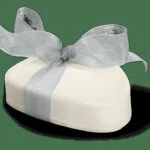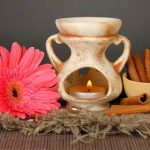Are you looking to improve your mood, reduce stress, and promote relaxation? Aromatherapy might be just the solution for you. This holistic healing treatment uses natural plant extracts, known as essential oils, to promote physical and emotional well-being. In this article, we will explore the best scents for aromatherapy and how they can benefit your overall health.
Aromatherapy has been used for centuries as a natural remedy to enhance psychological and physical well-being. The practice involves inhaling the aroma of essential oils, which can stimulate brain function and impact emotions. Research has shown that certain scents have the ability to calm the mind, uplift the spirit, and even alleviate symptoms of anxiety and depression.
Choosing the right scents for aromatherapy is crucial in achieving the desired therapeutic effects. Each essential oil has its own unique properties and benefits. Whether you are looking to relieve stress, improve mental clarity, or enhance relaxation, selecting the appropriate scent is key.
In the following sections, we will explore the top 5 best scents for aromatherapy: Lavender, Peppermint, Eucalyptus, Lemon, and Rosemary. Each of these essential oils offers distinct aromatic profiles and therapeutic properties that make them ideal for various purposes in aromatherapy.
Understanding the Impact of Scents on Mood and Emotions
Aromatherapy has been used for centuries as a natural way to enhance mood, reduce stress, and promote relaxation. The power of scents on our mood and emotions is well-documented, and by understanding how different fragrances can affect us, we can harness the benefits of aromatherapy to improve our overall well-being.
Certain scents have the ability to trigger physiological responses in the body, affecting our heart rate, blood pressure, and stress levels. For example, lavender is widely recognized for its calming and sedative properties, making it an excellent choice for promoting relaxation and improving sleep quality.
Peppermint has invigorating and stimulating effects that can help boost energy levels and mental clarity. Eucalyptus is known for its ability to clear nasal passages and relieve congestion, making it ideal for cold or allergy relief.
Choosing the right scents for aromatherapy is essential in order to achieve the desired therapeutic outcomes. Different individuals may respond differently to various fragrances based on personal preferences and past experiences.
It’s important to experiment with different scents to find what works best for you. Whether you’re looking to de-stress after a long day at work, improve mental focus, or simply create a relaxing environment at home, incorporating the best scents for aromatherapy into your routine can have a significant impact on your overall well-being.
The Importance of Choosing the Right Scents for Aromatherapy
When it comes to aromatherapy, the choice of scents is crucial in achieving the desired therapeutic effects. Each essential oil has its own unique properties and benefits, making it important to choose the right scents for your aromatherapy practice. The best scents for aromatherapy are those that have been proven to promote relaxation, reduce stress, improve sleep quality, and uplift mood.
One of the best scents for aromatherapy is lavender. Known for its calming and soothing properties, lavender essential oil is a popular choice for reducing anxiety and promoting relaxation. Peppermint is another great scent for aromatherapy, with its invigorating and refreshing qualities that can help alleviate headaches and boost energy levels. Eucalyptus is widely used for its respiratory benefits, making it an excellent choice for aromatherapy blends aimed at improving breathing and clearing congestion.
Lemon essential oil is known for its uplifting and energizing effects, making it a great choice for boosting mood and improving mental clarity. Lastly, rosemary essential oil is praised for its ability to enhance cognitive function and improve focus, making it a valuable addition to aromatherapy blends designed to promote mental alertness and productivity. By understanding the specific benefits of each scent, you can make informed choices when selecting the best scents for your aromatherapy practice.
Top 5 Best Scents for Aromatherapy
When it comes to aromatherapy, the choice of scents is crucial in order to achieve the desired mood and emotional effects. Whether you’re looking to relax, relieve stress, or improve sleep, selecting the best scents for aromatherapy is key. The following are the top 5 best scents for aromatherapy that have been proven effective in promoting overall well-being:
- Lavender: Known for its calming and relaxing properties, lavender is a popular choice for aromatherapy. Its soothing aroma is often used to alleviate anxiety and promote better sleep.
- Peppermint: With its invigorating and refreshing scent, peppermint is commonly used to boost energy levels and sharpen focus. It can also help alleviate headaches and migraines.
- Eucalyptus: Eucalyptus oil has a fresh and clean fragrance that is often associated with respiratory health. It can help clear nasal passages and promote easier breathing, making it ideal for colds and congestion.
- Lemon: The bright and citrusy scent of lemon essential oil is known for its uplifting and energizing effects. It can help improve mood, increase concentration, and reduce feelings of stress.
- Rosemary: This herbaceous and woody scent is great for improving mental clarity and focus. Rosemary essential oil can also aid in relieving muscle pain and tension.
By incorporating these best scents for aromatherapy into your routine, you can experience a range of therapeutic benefits that contribute to a healthier lifestyle.
Using these essential oils for aromatherapy can be done in various ways. Whether through inhalation or topical application, it’s important to understand how to use them safely and effectively in order to reap their full potential benefits. Experimenting with different blends or recipes using these top scents can also provide customized solutions for relaxation, stress relief, or improved sleep quality.
Selecting the right aromatherapy diffuser is also crucial in dispersing the scents effectively throughout your space. There are different types of diffusers available on the market, including ultrasonic diffusers, nebulizing diffusers, heat diffusers, and evaporative diffusers. Choosing the right one depends on your personal preferences and needs.
Incorporating aromatherapy into your daily routine doesn’t have to be complicated. From enjoying a relaxing bath with essential oils to creating personalized blends for your diffuser or applying them to pulse points throughout the day – there are plenty of ways to harness the power of these best scents for aromatherapy.
How to Use Essential Oils for Aromatherapy
When using essential oils for aromatherapy, it’s important to understand how to effectively use them in order to reap the maximum benefits. Essential oils can be used in a variety of ways, including inhalation, topical application, and diffusion. Understanding the different methods of using essential oils can help you customize your aromatherapy experience based on your needs and preferences.
Inhalation
Inhalation is one of the most popular and effective methods of using essential oils for aromatherapy. This can be done by simply inhaling the aroma directly from the bottle, or by adding a few drops to a bowl of hot water and inhaling the steam. Another common method is to add a few drops of essential oil to a cotton ball or handkerchief and inhale the scent throughout the day.
Topical Application
Another way to use essential oils for aromatherapy is through topical application. When using essential oils topically, it’s important to dilute them with a carrier oil such as coconut oil or almond oil to avoid skin irritation. Once diluted, they can be applied to pulse points, such as wrists or temples, or massaged into the skin for an overall sense of relaxation.
Diffusion
Using a diffuser is another popular way to enjoy the benefits of aromatherapy. Diffusers disperse the essential oil molecules into the air, allowing you to breathe in the scent and experience its therapeutic effects.
There are various types of diffusers available, including ultrasonic diffusers, nebulizing diffusers, and heat diffusers, each offering their own unique way of dispersing the scents. It’s important to choose a high-quality diffuser that best suits your needs and preferences when incorporating aromatherapy into your daily routine.
By understanding these different methods of using essential oils for aromatherapy, you can easily incorporate them into your daily routine for a healthier lifestyle. Whether it’s through inhalation, topical application, or diffusion, finding the best scents for aromatherapy and utilizing them effectively can have a positive impact on your mood and overall well-being.
DIY Aromatherapy Blends and Recipes for Relaxation, Stress Relief, and Sleep
Aromatherapy is a holistic healing treatment that uses natural plant extracts to promote health and well-being. The practice of using essential oils for aromatherapy has been around for centuries and is known for its various benefits, including relaxation, stress relief, and improved sleep. One of the best things about aromatherapy is that you can easily create your own blends and recipes to suit your specific needs.
To create DIY aromatherapy blends, you will need a few essential oils of your choice. Here are some popular essential oils that are known for their relaxing and stress-relieving properties:
- Lavender: Known for its calming and soothing effects, lavender is often used to promote relaxation and improve sleep quality.
- Peppermint: Widely recognized for its invigorating scent, peppermint essential oil can help alleviate feelings of stress and mental fatigue.
- Eucalyptus: With its refreshing and uplifting aroma, eucalyptus oil is great for promoting clear breathing and easing tension.
- Lemon: The bright and citrusy scent of lemon essential oil can help uplift mood and alleviate anxiety.
- Rosemary: This herbaceous essential oil is known for its ability to stimulate the mind and improve mental clarity.
To create your own DIY aromatherapy blend for relaxation or stress relief, you can mix a few drops of your chosen essential oils with a carrier oil such as jojoba or coconut oil. For example, you could combine 3 drops of lavender, 2 drops of peppermint, and 1 drop of lemon with 1 tablespoon of carrier oil to create a calming massage blend.
There are also plenty of aromatherapy recipes available for promoting better sleep. You can make a simple pillow spray by combining water with a few drops of lavender essential oil in a spray bottle, then lightly spritzing it onto your pillow before bedtime.
Alternatively, you can diffuse a blend of 4 drops of chamomile, 3 drops of cedarwood, and 2 drops of bergamot in an aromatherapy diffuser to create a relaxing bedtime atmosphere. Experiment with different combinations to find the best scents for aromatherapy that work for you.
Aromatherapy Diffusers and How to Choose the Right One
Types of Diffusers
There are several types of diffusers to choose from when incorporating aromatherapy into your daily routine. The most popular options include ultrasonic, nebulizing, heat, and evaporative diffusers.
Ultrasonic diffusers use water and vibrations to disperse essential oils into the air as a fine mist, while nebulizing diffusers break down essential oils into tiny particles without the use of heat or water. Heat diffusers utilize heat to evaporate the essential oils, while evaporative diffusers use a fan to blow air through a pad containing the essential oil.
Factors to Consider
When choosing the right aromatherapy diffuser, it’s important to consider factors such as room size, noise level, maintenance, and budget. For larger rooms, you may want to opt for a nebulizing or ultrasonic diffuser for maximum coverage. If you prefer a silent operation, consider a nebulizing or heat diffuser over an evaporative one.
Maintenance is another key factor – some diffusers require regular cleaning and upkeep, while others are more low-maintenance. Finally, set a budget for your diffuser purchase and explore options that meet your financial considerations.
Tips for Choosing the Best Scents for Aromatherapy
When selecting essential oils for your aromatherapy practice, it’s crucial to choose scents that align with your wellness goals. Some of the best scents for aromatherapy include lavender for relaxation and stress reduction, peppermint for mental clarity and energy boost, eucalyptus for respiratory support and congestion relief, lemon for mood enhancement and immune support, and rosemary for cognitive function and memory improvement.
Experiment with different scents based on their therapeutic properties and personal preferences to find the best ones for your individual needs.
Incorporating Aromatherapy Into Your Daily Routine for a Healthier Lifestyle
Incorporating aromatherapy into your daily routine can greatly improve your overall well-being and promote a healthier lifestyle. The use of essential oils in aromatherapy has been known to have numerous benefits for both physical and emotional health. Understanding the impact of scents on mood and emotions is crucial when choosing the best scents for aromatherapy.
When it comes to choosing the best scents for aromatherapy, it’s important to consider the specific benefits each scent offers. Lavender is known for its calming and relaxing properties, making it ideal for stress relief and promoting better sleep. Peppermint is great for increasing mental alertness and boosting energy levels, while eucalyptus can help with congestion and respiratory issues. Lemon and rosemary are both uplifting scents that can improve mood and focus.
Using essential oils for aromatherapy can be as simple as adding a few drops to a diffuser or creating your own DIY blends for relaxation, stress relief, or better sleep. Aromatherapy diffusers come in various styles and designs, so it’s important to choose one that fits your needs and preferences.
By incorporating aromatherapy into your daily routine, whether through diffusing essential oils or using them topically, you can experience the many benefits of these best scents for aromatherapy for a healthier lifestyle.
Frequently Asked Questions
Is There a Scent That Is Most Popular for Aromatherapy Use?
The most popular scent for aromatherapy use is probably lavender. Lavender essential oil is known for its calming and soothing properties, making it a favorite for relaxation and stress relief.
What Are the 10 Best Essential Oils to Try for Aromatherapy?
Some of the best essential oils to try for aromatherapy include lavender, peppermint, eucalyptus, tea tree, lemon, rosemary, chamomile, bergamot, ylang-ylang, and frankincense. Each of these oils has unique properties and benefits for health and well-being.
What Is the Most Relaxing Scent?
The most relaxing scent can vary from person to person, but many find that lavender is the most universally relaxing scent. Other scents that are often considered calming and relaxing include chamomile, rose, jasmine, and sandalwood. Ultimately, the most relaxing scent is a matter of personal preference and individual response.

Are you looking for a natural way to improve your health and wellbeing?
If so, aromatherapy may be the answer for you.





